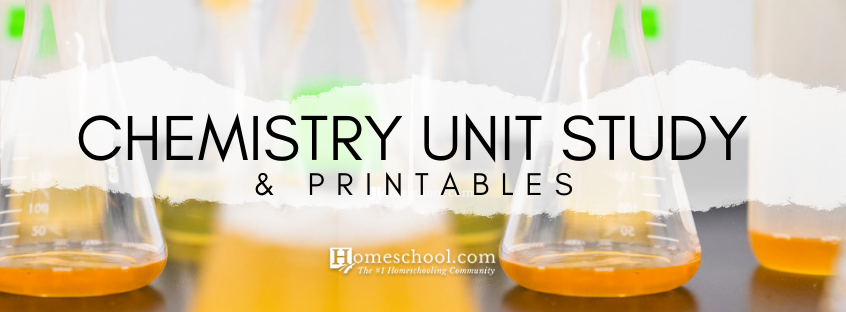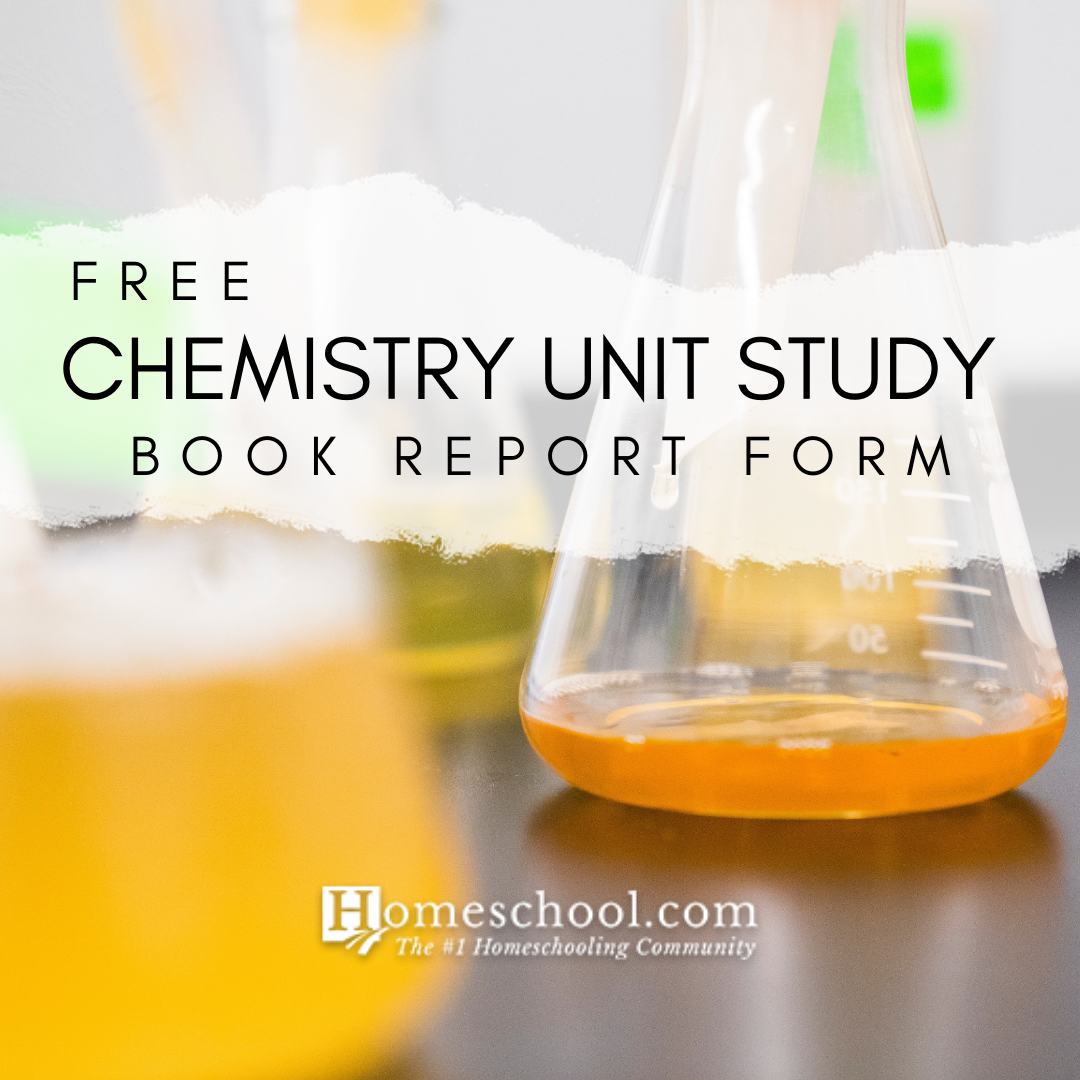October has been all about science and that theme continues with National Chemistry Week! When you think of science, does the image of a lab with beakers, bubbling solutions, and goggles come to mind? If so, then you are thinking about chemistry! Chemistry is well-known for carrying the image of science, and that’s for good reason. After all, chemistry explores the basis of life, AKA, the composition of matter!
However, for those of us who are new to chemistry, unlike astronomy or biology, it can seem rather cloaked in complicated equations and experiments. Can you even begin to understand or appreciate chemistry without a solid knowledge of formulas or chemistry-related jargon? Actually, yes you can! While mastering chemistry does require a foundation of that complex information, we can still learn how chemistry affects our daily lives and how it impacts us personally without a deeper study.
Thankfully, a major aspect of chemistry involves labs and experiments, which makes it one of the more hands-on branches of science! If you have ever found yourself asking technical questions like “What is a mole in chemistry?” or “How many elements are in the periodic table?” — then you have come to the right place, and this is the perfect week for you to learn more!
As homeschoolers, we tend to love projects since they bring schoolwork to life! Anything that involves visible results is a great choice for a unit study and a winner in our book. Let’s learn more about how we can see the implications of chemistry in our everyday lives, and how to experiment with it ourselves! If you’re more interested in creating your own unit study, learn more here!
Let’s Chat: What Defines “Chemistry”?
We already know what chemistry is, so why do we need to define it? Simply put, the best study begins with an exact definition of what we are learning. It’s a great starting point, and it cements the idea firmly so we aren’t grappling with a vague concept. That being said, let’s back up a little. What exactly is chemistry?
It is often said that, “Chemistry is the study of the composition of matter.” Chemistry evaluates how all substances combine, separate, and interact with other substances to form matter as we know it. Matter is what makes up the world around us, even our bodies! To that extent, chemistry recognizes that everything we see is the result of millions of particles combining in certain ways and interacting due to reactions and laws of nature. Further, chemistry studies why those particles react in the way they do.
Chemists often believe that understanding the basics of chemistry is important for everyone, and that it affects nearly every profession. Considering everything in existence consists of matter, chemistry is indeed involved in everyone’s lives. Chemistry is probably far more common in our day-to-day routines than you realize! Whether taking daily multivitamins, cleaning your house, exercising, cooking food, or even determining how to dress or plan your day for the weather, chemistry is involved.
Did you know there are five specific branches of chemistry?
- Organic chemistry
- Inorganic chemistry
- Biochemistry
- Physical chemistry
- Analytical chemistry
Further, there are numerous fields of study specific to chemistry. Here are a few!
- Environmental Chemistry
- Food Chemistry
- Chemical Engineering
- Forensic Chemistry
- Geochemistry
- Agriculture Chemistry
By these lists, you are probably beginning to realize the massive reach that chemistry has in today’s world. Its circle of influence is major simply because everything we know and enjoy in life is composed of matter, and chemistry analyzes and studies every bit!
The History of National Chemistry Week
National Chemistry Week began in 1987 by the American Chemical Society. To this day, it is still hosted by the ACS as a community program to increase public awareness of the importance of chemistry in our daily lives. The very first celebration of National Chemistry Week began with a parade in the streets of Washington, D.C.! This week began –and continues– with the intent to bring together educators, scientists, students, and all individuals in pursuit of a better world and improved quality of life.
Consequently, NCW is all about portraying the practical applications of biochemistry so everyone can see its impact on all of our lives. The career field of chemistry is complex and advanced, but NCW is here to bring it home so everyone can see why it is not only important to study, but to support continued research and advancements.
An incredible number of volunteers, as well as chemical companies and their employees, devote hundreds of hours each year in preparation for and celebration of National Chemistry Week! In fact, it’s been estimated that more than 10,000 people help out annually for this community program. While the ACS hopes to reach every age group of the general public, they also specifically hope to send a positive message to elementary and secondary students.
These students are at the perfect age to begin taking an interest in science, and the ACS hopes to help show them the fascinating world of mastering chemistry, and why it matters so much in our daily lives. Consequently, NCW isn’t merely about impressing the importance of chemistry, but also about sparking an interest in the career field for the generation of potential future chemists.
National Chemistry Week 2019
National Chemistry Week will be celebrated this year from October 20th – 26th. The theme for the 2019 National Chemistry Week is “Marvelous Metals”! As implied, the chemistry community will be exploring all the amazing metals that are part of our world. After all, there are so many more metals in existence than the ones of which we are most aware. For example, are you curious about which metal is the strongest known to humankind? To answer that question, however, you’d have to consider which category of strength you are looking for. There are four types of metal strength:
- Tensile strength
- Compressive strength
- Yield strength
- Impact strength
All of these options need to be considered when answering what sounds like a simple question at first glance. This is one example of why this year’s theme for National Chemistry Week is fascinating — there’s much more to the seemingly simple world of metals than we could imagine.
To celebrate this year, we are excited to share several events and opportunities for homeschoolers to take part! You can find the entire list on the ACS website, but we have also shared ten of the fun projects and activities below.
- Program-in-a-Box Webinar
- Tuesday, October 22nd
- YouTube Video Resources
- Illustrated Poetry Contest
- Deadline: Sunday, November 3, 2019, 11:59 EST
- NCW-themed online merchandise.
- Chemistry safety guidelines.
- Build a battery with these instructions (and proper adult supervision/help!)
- A science activity for ages 7 – adult.
- “Memory Metal” science project kit
- A hands-on activity for ages 4-adult!
- Frankenstein-inspired “Spark of Life” science project
- For ages 4 – adult.
- How to incorporate STEM into superhero science
Why is Chemistry and Biochemistry Important?
Perhaps you’re still not convinced that mastering chemistry is something with which you should concern yourself. After all, your life doesn’t revolve around anything scientific, mathematical, or even medical. Why should you study chemistry? To be honest, the reasons are numerous, but here are ten to get you started!
- Chemistry affects food safety. The study of chemistry has led to organizations such as the FDA, which determines food safety standards down to the ingredients that could be potentially unsafe.
- Hygiene and sanitation are based on chemistry. Similarly, our knowledge of necessary ingredients and steps for sanitation is all thanks to chemistry showing us what works and what doesn’t for the desired effect: cleanliness.
- Medical treatments and medicine rely on chemistry for testing and discovery. Medicine is one of the most important areas of chemistry. Chemistry is incredibly important for determining medical treatment, medicine dosage, allergies, and combinations. Chemistry determines whether certain medicines will be effective for certain issues, and is the framework for how those medicines are created, to begin with.
- The difference between nutrients and pollutants comes down to chemistry. Some chemicals are nutrients, while others are pollutants. What makes the difference? Chemistry shows us! The study of chemistry reveals why certain compounds are dangerous, ineffective, or damaging, while others are necessary, helpful, and healing. This point extends to both the environment and our health.
- Chemistry helps us make informed decisions. Individuals with a basic knowledge of chemistry will not be scammed so easily into believing misleading news or fabricated facts. With chemistry in mind, you’ll understand the greater meaning of issues when they are presented.
- With a foundational knowledge of chemistry, we can better understand what goes on in the world. For example, we will understand why leaves change colors the way they do, why food product recalls are unsafe, why oil spills are a threat to ecosystems, and more. You won’t merely be absorbing the opinions or statements of others.
- Chemistry is considered the “central science.” Specifically, it connects all branches of science. It is theorized that an understanding of biochemistry will help students more efficiently comprehend other sciences.
- We rely on chemistry daily. Even without realizing it, every action we make is thanks to a chemical reaction. Chemistry is merely the explanation for how and why those chemical reactions occur.
- Chemistry is the basis of life. This branch of science explains the underlying reasons for everything that happens in our world and individual lives. It’s one of the most hands-on sciences as well, which gives students a chance to discover these chemical reactions for themselves.
- Studying chemistry prepares us for the “real” world. Numerous career fields and professional industries are dependent on chemistry for success. For example, the medical field, energy, technology, food production, clean water/clean air, housing materials, and more.
Mastering Chemistry: 10 Fun Facts
Biochemistry is one of those sciences that, at first glance, seems vague, complicated, and a whole jumble of equations and formulas. To be fair, it’s true that chemistry can be complicated and technical for those studying it for a credit course or their profession. However, chemistry is also one of the most hands-on and explorative sciences! Since chemistry is based on chemical reactions, it involves a lot of lab time, which means seeing these things for yourself. That makes chemistry FUN!
However, even when you’re not making a volcano or elephant toothpaste, there are still several cool facts about chemistry to keep in mind. One of the best parts of chemistry is when chemists share their mind-blowing discoveries with us. Here are ten awesome chemistry facts!
- The only two non-silver metals are gold and copper.
- Hot water freezes faster than cold water. Why?
- Glass is neither a liquid nor a solid! The molecules actually still move, just very, very slowly.
- Every hydrogen atom in your body was created at the beginning of our universe.
- Adding salt to water will decrease the volume of water!
- Our underlying biological instructions, known as DNA, is flame-resistant and researchers are looking into the possibility of coating clothing with DNA for inflammable products.
- It would take 10 inches of snow to equal one inch of rain due to how water expands as it freezes.
- Car airbags are filled with toxic sodium salt azide, which expands rapidly when triggered and dissolves into a safe nitrogen gas — which then fills the airbag itself. All within one second!
- Air will turn to liquid when subjected to extremely cold temperatures and high pressure.
- Do you know that sulfurous smell after a lightning storm? That would be ozone, which is released thanks to lightning strikes.
10 Chemistry Activities and Science Experiments for Kids
The best part of any unit study is when you finally get to do a few activities, right? I’m a reader, and yet I love putting away the books for a moment to just dive into a project and have fun! After all, the best learning happens through games and curiosity. Personally, that’s why we’ve always loved turning to Science Buddies to add an extra spark of fun to our science lessons, such as with biochemistry. Similarly, here are several startling and fun activities for your kids to take a breather from the technical chemistry information and see why it’s so fascinating for themselves!
- Create an erupting lemon volcano!
- We all know about erupting volcanoes, but have you ever heard of using a lemon?! This is brilliant!
- Read these 10 science fair books to inspire the scientist in us all!
- This list of books is perfect for the readers in your homeschool family!
- Make your own erupting black holes!
- Combining chemistry with astronomy? I love it!
- Enjoy this popcorn and salt experiment.
- Why make popcorn on the stovetop or microwave when you can do this and learn a bit of science at the same time?!
- Explore chemical reactions with this simple experiment.
- You can’t have a mastering chemistry unit study without experiments based on chemical reactions. The best part? These are simple and use household items!
- WOW your younger students with this magic milk science experiment!
- This is perfect for introducing chemistry and chemical reactions to your kindergarten and young elementary students!
- Learn more about charged atoms!
- This project is simple but pretty awesome since it uses static electricity to demonstrate charged atoms! Your kids will recognize the static, but now they will know what’s actually happening!
- Build a chemical reaction CAR!
- Could this be any cooler? Your kids are going to flip for this car as it speeds away thanks to the force of the chemical reaction!
- How much are pennies worth?
- This is a fascinating experiment to see whether the metal holds the same value as a penny!
- Create glowing eggs with this ghostly experiment!
- Just in time for Halloween! Why not add a little spooky science fun into the mix?
FREE Chemistry Week Printables
Click on the images below to open our free printables! Here, you’ll find a book review form, puzzles, and flashcards! We love how printables direct newly learned hands-on knowledge to a written medium — a great option for varying learning styles. Enjoy!
At its roots, chemistry is the study of matter and how it interacts with other matter and energy. While chemistry may have a reputation as a confusing or boring branch of science, we hope this unit study has helped shown otherwise. Mastering chemistry does involve strong mathematics and logical reasoning, but we firmly believe that anyone can understand the basics.
After all, chemistry applies to everyone, since it explains how the world works, and we are all affected. Oftentimes, while chemistry does involve following strict rules for formulas, it also involves thinking outside the box to determine possibilities and discoveries. Consequently, the field of chemistry would benefit from the input of homeschoolers, who are already encouraged to think intuitively and present unique solutions!







